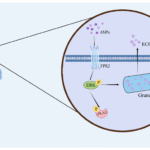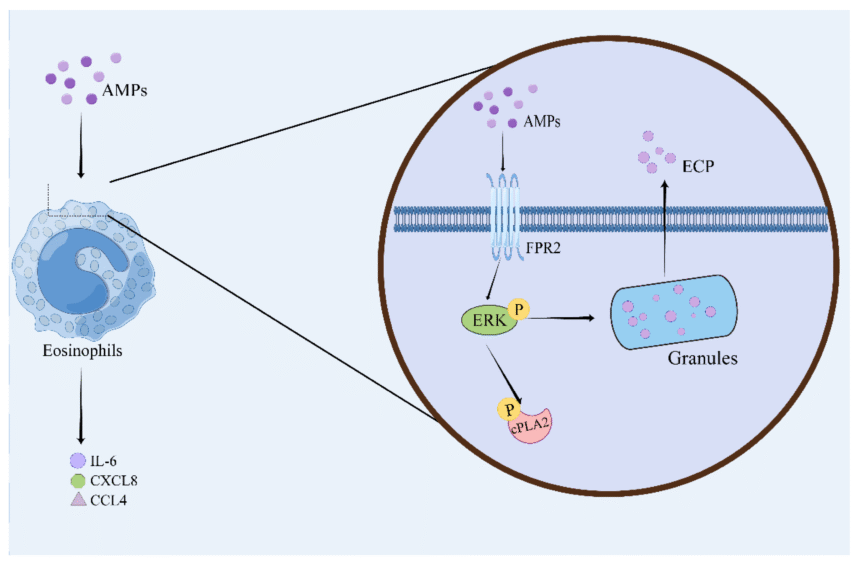The field of immunology is rapidly evolving, and research peptides have become essential tools in exploring how the immune system responds to various diseases. Trusted peptide manufacturers play a crucial role in supplying high-quality compounds that support groundbreaking studies in immune modulation. By providing reliable peptides, they enable scientists to design effective immunotherapies, improve drug development, and advance clinical trials focused on immune-related disorders.
The Role of Research Peptides in Immune Modulation
The immune system is a complex network of cells and signaling pathways that protect the body from infections and diseases. Research peptides are now central to understanding these pathways, as they mimic natural proteins and influence immune responses. Reliable peptide manufacturers ensure the production of highly pure peptides, which are essential for precise studies in immunology and biotechnology.
Peptides are used to stimulate or suppress specific immune responses, a process known as immune modulation. In immunotherapy, these compounds are being investigated for their ability to enhance T-cell activity, regulate cytokine production, and support personalized therapies. With advanced peptide synthesis techniques, researchers can develop custom sequences that target immune cells more effectively.
Why Peptide Manufacturers Are Vital for Immunotherapy Research
High-quality production standards set by professional peptide manufacturers are critical for the success of immunotherapy research. Poor-quality peptides can produce inconsistent results, making it impossible to draw accurate conclusions about immune modulation. Therefore, biotechnology companies rely heavily on trusted partners to supply research-grade peptides for preclinical and clinical studies.
In immunotherapy, research peptides are being explored as vaccine components, immune response boosters, and even as potential treatments for autoimmune diseases. Consistent quality ensures reliable outcomes in experiments, leading to more effective peptide-based therapies.
Peptide Synthesis and Its Impact on Immune Response Studies
Modern peptide manufacturers use cutting-edge peptide synthesis technologies to produce custom sequences for research applications. This allows scientists to study how small changes in amino acid sequences can influence immune responses. Through detailed experiments, researchers are discovering how research peptides can be engineered to either activate or suppress immune pathways.
These findings have significant implications for drug development. By understanding the interaction between peptides and immune cells, biotechnology firms are creating new therapeutic strategies to treat cancer, viral infections, and chronic inflammatory diseases.
Research Peptides in Clinical Trials for Immune Modulation
Clinical trials are essential for proving the safety and effectiveness of any new therapy. High-purity research peptides provided by reputable peptide manufacturers are now being used in multiple clinical studies focused on immune modulation. These trials investigate how peptides can act as antigens in cancer vaccines, improve immune checkpoint inhibitor therapies, and reduce the side effects of existing treatments.
The growing interest in peptide-based therapies reflects their unique advantages. Unlike traditional drugs, peptides have high specificity and low toxicity, making them ideal candidates for immunomodulatory treatments.
Applications of Research Peptides in Autoimmune and Infectious Diseases
Autoimmune diseases, where the immune system attacks healthy tissues, are among the most challenging conditions to treat. Research peptides are being used to re-educate the immune system, helping it recognize the difference between healthy and harmful cells. Peptide manufacturers produce specialized sequences designed to induce immune tolerance, potentially reducing the severity of autoimmune reactions.
In infectious disease research, peptides are being studied as vaccine adjuvants, helping to boost immune responses against pathogens. By working closely with biotechnology companies, peptide manufacturers ensure that researchers have access to tailored peptides for these applications.
The Future of Peptide-Based Therapies in Immunology
The future of immunology will likely be shaped by advances in research peptides and the continuous innovation of peptide manufacturers. As peptide synthesis technology improves, scientists can design more complex molecules that precisely target immune cells. This precision will lead to safer and more effective immunotherapies.
Emerging trends, such as personalized peptide vaccines and combination therapies, are already showing promising results in clinical trials. With ongoing collaboration between biotech companies and peptide suppliers, peptide-based therapies are expected to revolutionize immune system modulation.
Internal Linking Suggestion
For readers who want to explore more about high-quality peptides for immunology research, visiting Qingli Shangmao is highly recommended. The company is known among top peptide manufacturers for supplying premium research peptides that support groundbreaking work in immune modulation and other biotech applications.
Summary
The remarkable progress in immunotherapy and immune modulation would not be possible without the availability of high-quality research peptides. Trusted peptide manufacturers like Qingli Shangmao provide the essential building blocks that drive innovation in drug development, clinical trials, and biotechnology research.
Researchers and biotech firms looking to make meaningful advances in immune modulation should consider partnering with experienced suppliers. With premium-quality peptides and reliable production standards, Qingli Shangmao stands out as a trusted source for accelerating discoveries in immunology.











